Before John Kent-Adebayo decided to major in Product Management, he tried his hands on other things in Tech. From Networking to Mobile Development, Social Media Management to UI/UX before he realized his strength in selling, conversion and growth marketing.
Now a Product Manager with over 8 years of experience across Global companies, he had a chat with us about balance, the importance of prioritizing, transitioning, Product Management and the future of Tech.
Everything he said in this awesome chat with us is something interesting to chew on.
The Interview
What led you into tech?
I can’t remember, but right from secondary school, as far back as 2010, when people asked me what I wanted to become, I would tell them I wanted to be a computer scientist. Why? How? I don’t know. All I knew was that I just felt the future was tech. After secondary school, I wrote the UTME, which was the period of mass failures; I was affected. So, I had to go for a pre-degree program. During that time, my career interests started to shift, influenced by my love for biology. I registered biology as my first choice and computer science as my second. I gained admission to study biology, but I met a few people who opened my eyes and told me that with biology, the highest I could achieve was teaching, so I declined. The third batch admission list came out, and I was offered admission to study computer science.
Before I resumed, I attended a not-so-free computer training program where I learned networking. This was the introduction to my tech journey.
I saw that my nation, my community, and my ecosystem were underdeveloped. I mean, the United States, India, and China are tech-inclined, so I thought if I could replicate this in my community, it would be a great thing. I had a vision of a future where everyone would be tech-savvy, so I delved into technology.
Why product management?
I started my tech journey in 2013. Over the years, I have done many things in tech. From networking, I moved to mobile app development. Andela came to my community, and I was one of their first learners in Abeokuta. From there, I tried my hand at a lot of things. But there was an issue: I had no laptop then, and you can imagine how stressful it was. It was a lot, so I had to switch to digital marketing, where I thrived.
Not to bore you with stories, I transitioned into UI/UX and started getting employment opportunities along that line. While I was at it, my eyes were opened to the business side of tech. I loved it. I saw my strengths in selling, conversion, and growth marketing. At a point, I realized that I had seen all sides of how startups and tech operate. I understood the basic aspects of any product—security, design, development, and all of that. I just felt, “Oh, let me just transition.” Managing teams, leading, and motivating people also played a big role in my transition.
You do a couple of cool things, like building and serving a community of product managers with a 9–5 job. How do you combine everything together?
In the beginning, it was very difficult for me, to be honest. I realized one day that I was busy most of the time without being productive. I had to learn how to balance and multitask since it was a lot. At one point, I had to let go of some things to focus on the important ones.
Also, one thing that keeps me going is my love for everything I do, hence the grit and determination to not just do them but also do them well. It all comes down to setting priorities, good and effective time management, my love for what I do, and self-awareness.
What do you find most interesting about what you have built over the years?
Nurturing ideas, doing product teardowns for people, product branding, and that aspect of my work that allows me to talk to people about products and what I have built with my team.
If you were given a $1,000 grant now, is there something you’d like to spend the money on?
A thousand and one things are coming to my mind right now. But I think the most pressing one is investing the money into this product I am building. I am currently working on Savey Africa, and the end goal of this product is to make everyone stay accountable to their finances through budgeting. The money would definitely go a long way in finishing the product, scaling it, and employing more hands.
Tech is the new oil.” Do you agree?
Everyone says tech is the new oil, tech is the way. Yes, I agree with that, but a hill I am willing to die on is that tech is not for everyone. Everyone can be digitally trained, but not everyone can be a techie.
What is the biggest thing you have spent money on?
My gadgets and setting up my workspace.
What is your money personality? A saver or a “you only live once” advocate?
In the beginning, I didn’t know how to say no to people. I spent a lot on helping people and solving their problems. It can be funny, right? Always spending but not on or for yourself. But that has changed now. I think I now sit between spending and saving.
This is one of the reasons I am so invested in Savey Africa. It is a project for me and everyone out there who needs to stay accountable with budgeting and maintaining a great financial lifestyle.
Any big goals you are looking forward to ticking off in the next 10 years?
As a product person, when I see any slight problem, I think of a product that will be a solution. This automatically means I have several products in my bank of ideas, but there are two unicorn products. I am looking forward to building the next big product in Africa while using this opportunity to invest in startups.
In the next 10 years, I am looking forward to recording the launch of my products, investing in startups, and being comfortable.
A piece of advice for anyone who thinks, “Oh, John Kent-Adebayo is making moves with product management, I want to be like him”?
I tell people I wouldn’t advise anyone to go through what I have been through.
I would rather tell people that, first, tech is good, but look at your strengths and weaknesses. Don’t delve into it just because you see everyone rushing into it.
Also, I try to remind them that if you want it, the earlier the better. You need experience in the labor market.
My advice is, to figure out where you will thrive best, start now, and start early. The future is tech.


Jk
Sweet read